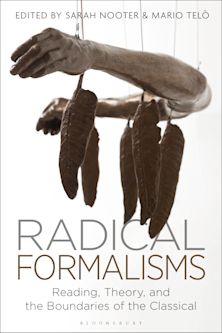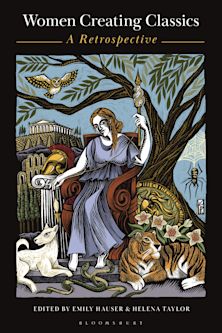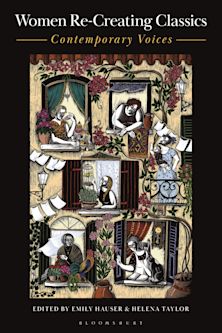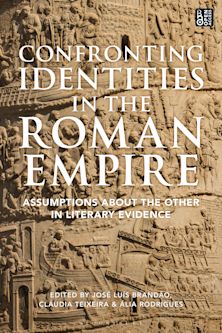- Home
- ACADEMIC
- Literary Studies
- Classical Literature
- The Civic Spectacle
This product is usually dispatched within 3 days
- Delivery and returns info
-
Free CA delivery on orders $40 or over
You must sign in to add this item to your wishlist. Please sign in or create an account
Description
In this exploration of four plays by Aeschylus, Euripides, Machiavelli and Shakespeare, Mera Flaumenhaft argues that, by revising well-known myths or histories, each playwright reshapes the community for which he writes. Emphasizing the context in which the plays have been read and performed, she examines the moral and political effects of each drama and its production, from the role of classical tragedy in MAINtaining the classical city, to the role of the modern history play in forming and maintaining the nation-state. Flaumenhaft demonstrates how the playwright's presentation of political themes within each drama relates to his view of the broadly political function of theater in his society.
Product details
| Published | Aug 23 1994 |
|---|---|
| Format | Paperback |
| Edition | 1st |
| Extent | 120 |
| ISBN | 9780847679645 |
| Imprint | Rowman & Littlefield Publishers |
| Dimensions | 228 x 154 mm |
| Publisher | Bloomsbury Publishing |
About the contributors
Reviews
-
Mera Flaumenhaft has given us superb analyses of Aeschylus, Euripides, Machiavelli, and Shakespeare. Beyond this, she has demonstrated the social and political function of drama in maintaining and strengthening community. Not only those interested in the history of drama, but also anyone concerned with the problem of community in modern society has much to learn from this sensitive and insightful treatment.
Mary P. Nichols, Emerita Professor of Political Science at Baylor University
-
This is a very fine book. Mera Flaumenhaft displays both sound scholarship and a distinctive and original approach. She teaches something new-how to view as well as how to read a play. I know of no one else who has tackled the combination of issues she discusses-certainly not in the philosophical way or with the keen literary eye that she has.
Jan H. Blits
-
Mera Flaumenhaft is an acute and sensitive reader...
Catherine H. Zuckert
-
Flaumenhaft never lets us forget the didactic role that the theater plays, but the real strength of this book lies in the insistence that we can only understand that didacticism if we attend to the context in which we are observers of representations...Flaumenhaft's book keeps us wonderfully alert to how much we can learn about ourselves, about others, about the nature of communal life by studying the politics of play watching.
The St. John's Review Dis .40
-
These essays are as deep as they are lucid; Flaumenhaft succeeds splendidly in her goal of using 'ordinary language' to 'think about the primary questions in our real lives.'
William Mullen, Bard College













